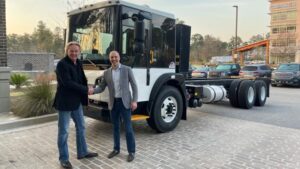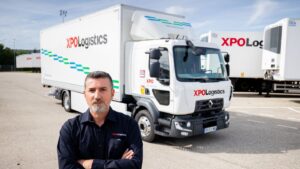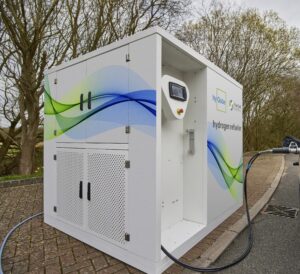UPS, the largest freight company in North America, has made the switch to cleaner fuels for 10% of its global fleet, with the aid of Kansas City Regional Clean Cities, and the US Environmental Protection Agency’s Diesel Emissions Reduction Act (DERA) programme.
Diesel emissions contribute towards severe health problems for those in typically low-income neighbourhoods close to highways and industrial areas.
UPS is the biggest for-hire freight trucking company in North America, whether by revenue ($71.9 billion), income ($4.8 billion), or even employee count (481,000). The fleet operates 125,000 vehicles globally, ranging from Class 8 tractors to motorcycles. UPS handles long-haul freight, cross-town courier deliveries, and everything in between.
Kansas City Regional Clean Cities (KCRCC)has been called in to help with urban clean fuel projects for UPS, across Kansas, Missouri, Iowa and Nebraska.
For a company this big moving towards alternative fuels requires great action. At this moment in time, UPS has embraced propane, hybrid-electric and hydraulic hybrid, ethanol, liquefied natural gas, compressed natural gas, and all-electric technologies. Throughout 2019, it put more than 10,300 alternative fuel and advanced technology units on the road, nearly 10% of its global fleet.
UPS’s most popular clean fuel is compressed natural gas. Usually, this is best for Class 8 long-haul tractor units, as natural gas is particularly suitable for long-haul freight. Liquefied natural gas would also be a good match. The infrastructure is not widely accessible yet.
UPS also uses compressed natural gas, but this is limited to the two yards KCRCC work with most for the company. These vehicles tend to be fixed-route day cab trucks which average 400 miles a day, operating on a strict out-and-back basis, returning to base every night with time-fill and fast-fill fuelling on site.
‘It won’t be an overnight process, but we’re proud to help make a positive environmental impact that will last thanks to these new, cleaner trucks being on the road,’ commented David Albrecht, on behalf of Kansas City Regional Clean Cities.
Thanks to the US Environmental Protection Agency’s Diesel Emissions Reduction Act (DERA) programme, KCRCC have managed to work with UPS. Over the last four years, 21 diesel tractors in the Kansas City metro area were replaced with natural gas models. DERA funds the replacement of old diesel units with new diesel, propane, electric or natural gas models, across public, private and government fleets.
After over 15 years, DERA continues to strive towards cleaner air. Diesel emissions are one of the most harmful forms of air pollution. NIOSH, CDC, and even the World Health Organisation, all classify diesel exhaust as carcinogenic.
Diesel engines produce nitrogen oxide, a key element in smog and harmful ground-level O-Zone, carbon monoxide, and PM 2.5. This particulate matter is the equivalent of one-thirtieth the width of a human hair, small enough to enter the bloodstream through the lungs directly. This harms lung function and increases the risk of bronchitis, lung cancer, and heart disease.
Yet diesel engines are the driving force of the global economy. Heavy-duty vehicles and machinery tend to be dependent on diesel: trucks, container ships, railroad engines, buses, construction equipment. If well-maintained, diesel engines can run for decades. Even with the 2007 mandated introduction of ultra-low sulphur diesel, the quality of life for those who live around roads or industrial areas is seriously harmed. Often, low-income neighbourhoods suffer the health impacts of diesel emissions.




